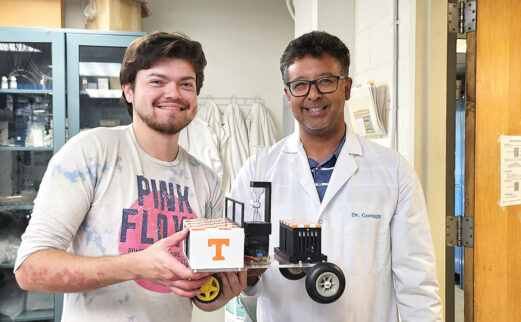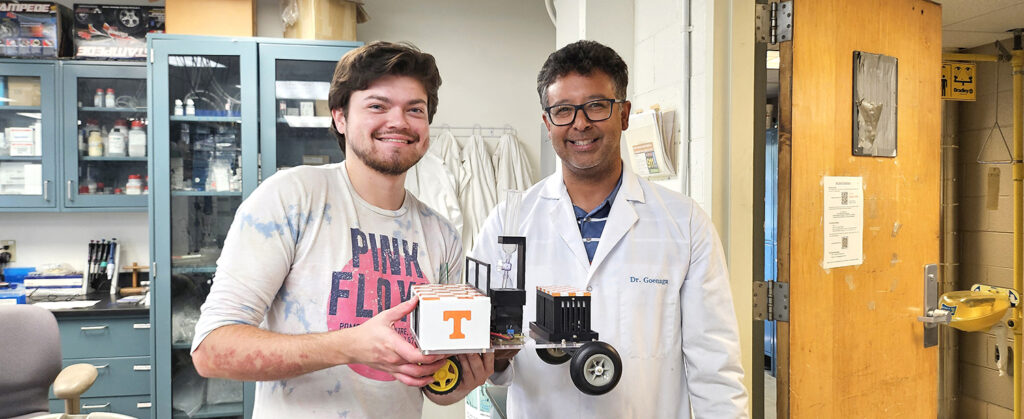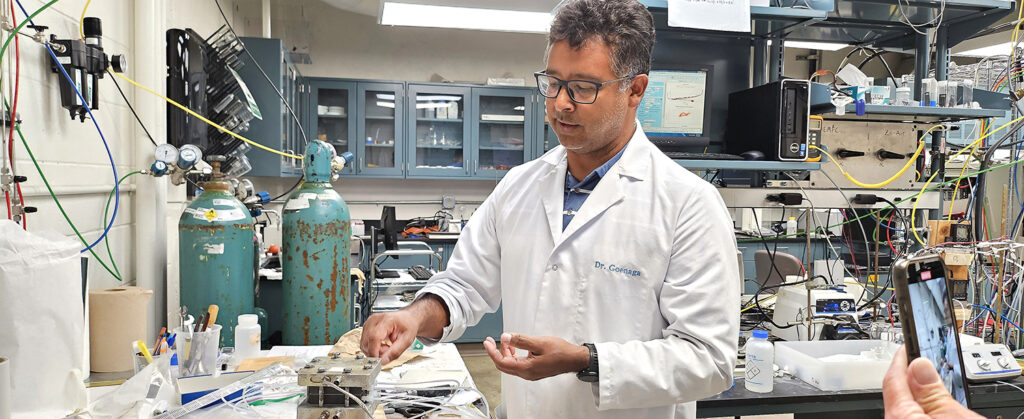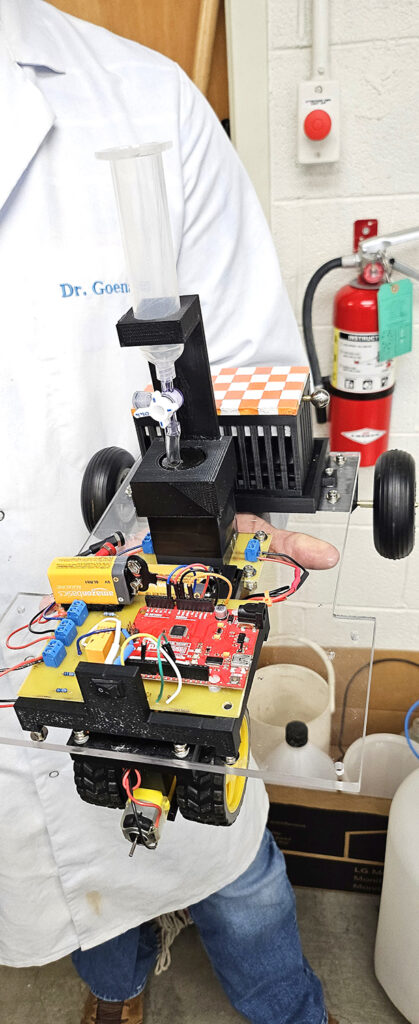

The Makerspace in Pendergrass Agriculture and Veterinary Medicine Library is fulfilling UT’s mission as a land-grant research university by supporting innovative research and inspiring communities across the UT campus. Its work may be behind the scenes, but the Makerspace plays a key role in empowering discovery, creativity, and learning. Not long ago, for instance, its 3D printing technology allowed a student team to submit their chemically powered car to a national competition.
Richard Sexton, makerspace and technology coordinator at Pendergrass Library, launched 3D printing production in 2013 when the library purchased a 3D printer to gauge the feasibility of making the technology available. Sexton saw the potential. He was always interested in making things—painting, drawing, and repairing household items and giving them a second life. It was a natural fit for him. At the beginning, his goals were to provide knowledge of 3D printing technology, demonstrate how the machine works, experiment with 3D modeling software, and provide experiential opportunities to the university community. Over 10 years of operation, he has achieved more than he had hoped.
Pendergrass Library’s Makerspace has fulfilled 3D printing requests from departments and individuals across the campus. Patrons have requested a broad range of prints, from bicycle racks to hang on garage walls to customized lab equipment.
Sexton recently worked with Andrew Lewin, an associate professor of comparative ophthalmology in the College of Veterinary Medicine, to produce devices of his own design to aid in clinical training. The devices are designed to help in holding and observing animals’ eyes during his classes. This is just one example of real-world prototypes created in the Pendergrass Makerspace.
Gabriel Goenaga, a senior research associate in the Department of Chemical and Biomolecular Engineering, is a devoted patron of the Pendergrass Makerspace. His relationship with Pendergrass Library goes back to 2019, when he was looking for 3D printing services to create prototypes of batteries for his research. The Pendergrass Makerspace had acquired a printer that could produce professional-level 3D models, and Sexton’s extensive knowledge of applications, advice on 3D models, and professional services were exactly what Goenaga needed to advance his research. Sexton’s customized services and the Pendergrass Makerspace’s options for 3D production saved Goenaga money, time, and energy that he could dedicate to his research. Presently, he is working on a project to develop batteries that will be used in US Army vehicles.
In 2021, Goenaga and his student team submitted their innovative chemically powered car to the Chem-E-Car Competition hosted annually by the American Institute of Chemical Engineers. The UT team’s car was powered by an aluminum-air battery that uses kudzu leaves. The prototyped batteries and body chassis for the car were printed using Pendergrass’s 3D printers. Goenaga’s team placed eighth among 25 competitors and qualified to go to an international conference.
3D printing at Pendergrass is not just for research purposes. The library provides 3D printing instruction and consulting. In spring 2024, the library conducted 3D printing instruction for construction science classes, and for their final assignment students designed and printed 3D models in the Makerspace. Other construction science classes have created 3D-printed I-beam models to determine which design is strongest under pressure.

Pendergrass’s Makerspace has printed models of microscopic pollen grains and dinosaur bones for McClung Museum’s educational activities for children, and it printed rainbow-colored butterflies for the UT Arboretum’s Butterfly Festival in September 2024.
Since its grand opening in February 2024, Hodges Library’s Medbery Makerspace has focused on arts and crafts, 3D printing, and fabrications for student-organized projects. Pendergrass Library’s Makerspace, however, will remain focused on 3D printing production and providing customized services and support for research projects, classroom tools, and individual projects—initiatives that advance the real-world value of research conducted at the university.
